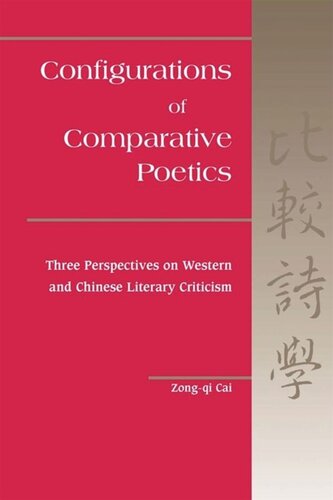

Most ebook files are in PDF format, so you can easily read them using various software such as Foxit Reader or directly on the Google Chrome browser.
Some ebook files are released by publishers in other formats such as .awz, .mobi, .epub, .fb2, etc. You may need to install specific software to read these formats on mobile/PC, such as Calibre.
Please read the tutorial at this link: https://ebookbell.com/faq
We offer FREE conversion to the popular formats you request; however, this may take some time. Therefore, right after payment, please email us, and we will try to provide the service as quickly as possible.
For some exceptional file formats or broken links (if any), please refrain from opening any disputes. Instead, email us first, and we will try to assist within a maximum of 6 hours.
EbookBell Team

4.4
52 reviewsThis comprehensive comparative study of Western and Chinese poetics begins with broad examinations of the two traditions over more than two and a half millennia. From these parallel surveys, a series of important theoretical questions arises: How do Western and Chinese critics conceptualize the nature, origin, and function of literature? What are the fundamental differences, if any, in their ways of thinking about literature? Can we account for these differences by examining Western truth-based and Chinese process-based cosmological paradigms? What are the major distinctive concepts of literature developed within Western and Chinese poetics? How have these concepts impacted the development of the two traditions at various times? After considering a wide range of major critical texts, Configurations of Comparative Poetics presents bold and cogent answers to these questions while shedding light on the distinctive orientations of Western and Chinese poetics.
The second half of the book features four comparative case studies: Plato and Confucius on poetry; Wordsworth and Liu Xie on the creative process; the twentieth-century "Imagists" and their earlier Chinese counterparts on the relationship of the Chinese written character to poetics; and Derrida and the Madhyamika Buddhists on language and onto-theology. The author not only identifies an array of critical concerns shared by Western and Chinese critics, but also differentiates the conceptual models used by each and traces them to cosmological paradigms.